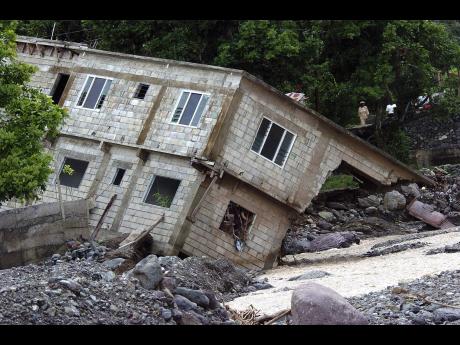Growth & Jobs | Increase investment in disaster risk management - IDB
MicroFinance Institutions (MFIs) need to increase their investment in disaster risk management prevention, states Yuri Chakalall, natural disaster and risk management senior specialist at the Inter-American Development Bank (IDB).
The micro, small and medium enterprise sector needs to acquire greater disaster resilience, and MFIs have a stake in assisting them achieve this, Chakalall posited; and explained that the financial institutions would benefit by helping their clients prepare to reduce their vulnerability.
"We have found that for every dollar invested to mitigate against risk reduction yields between $4 and $6 in future avoidance of losses," stated Chakalall. "Therefore, rather than wait for a disaster to happen, a lot of work should be done in risk resilience preparation to understand and manage risks."
The risk management specialist said for the period 1995-2015, natural disasters cost the Americas a total of US$870 billion in losses; and, he noted that these disasters came as a result of flooding, storm-related damage and seismic events.
He was presenting on the theme 'Disaster Risk Management and Business Continuity - Issues to Consider and How to Evaluate Risk' at the Caribbean Microfinance Alliance Forum, which was held at the Hyatt Ziva Hotel, Rosehall, St James, recently.
Chakalall explained that while data regarding the impact of natural disasters on the sector overall was sparse, records show that the economic impact of natural disaster has been increasing since the early 1900s.
He added that MFIs were often impacted by natural disasters because many of their clients live in vulnerable areas, or were affected by poor building practices.
"These disasters affect the microfinance sector through liquidity issues," he explained. "There is often an increase in delinquency because clients can't repay. Also, there is loss of equipment, home, staff and other issues. This is why organisations such as the Caribbean Development Bank and the Inter-American Development Bank, and other entities are working to introduce tools which will provide better access to information and knowledge management to aid risk prevention."
He also pointed out that a 2007 study from The University of the West Indies, St Augustine, noted that of 47 financial institutions surveyed across the region, 60 per cent of them did not have contingency plans; 94 per cent had no client risk diagnostic system; and 78 per cent had no preventative or relief policy in place.
To mitigate against effects of natural disasters, he urged MFIs to consider several measures that would benefit them and their clients.
"One way to help these situations is that MFIs can come up with their own characterisation of appraising risk and hazard exposure. They can also seek to measure the impact of damage on clients themselves," he explained.
...Disaster insurance can benefit the region
Gillian Hyde, general manager, JN Small Business Loans, and member of the CMFA Board of Directors, said any measure in disaster risk management would benefit the sector in Jamaica and the region.
"In the past, MFIs have assisted clients after natural disasters to get back on their feet. We believe that such plans, as well as assistance from relevant stakeholders in areas such as disaster insurance, will also benefit the sector," she stated.
Chakallal said the region could also examine other regions, such as Bangladesh and Pakistan, which have been successful in bringing grass-roots disaster risk management in their portfolio through methods such as loan refinancing, and communicating with clients to give them greater confidence.
"They are also exploring insurance for their clients that will help with recovery from disasters," he noted, and advised that the MFIs could also consider raising money to assist clients through catastrophe bonds, insurance and other measures.
"The financial cost of risk as it relates to disasters is increasing," he informed. "This is becoming an important policy area for the region, as we see an increase in disasters."


